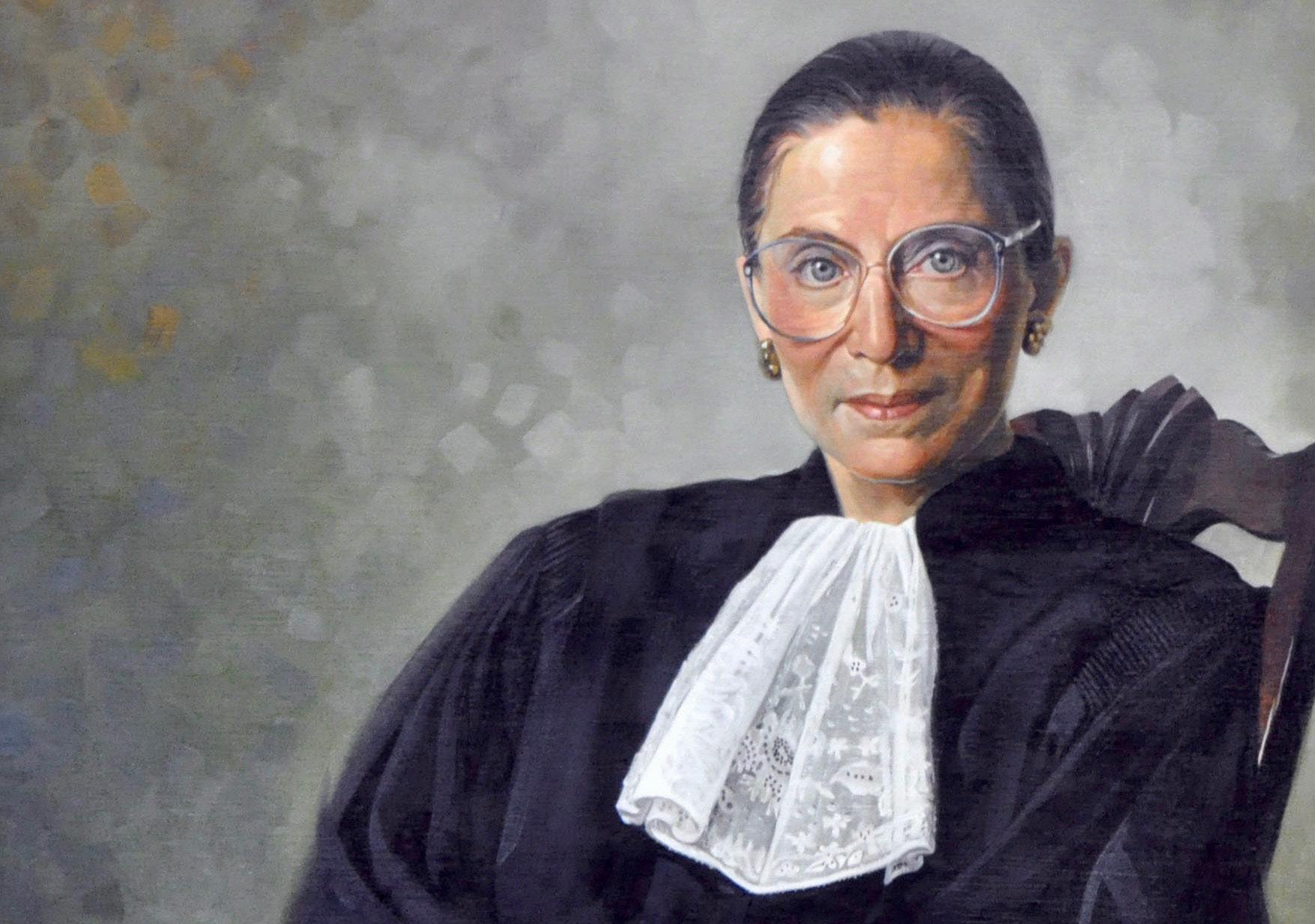
24 minute read
Vice President Joe Biden
off-campus opinions
Opinion: Donald Trump should be President
Advertisement
Michael Tallarida ‘21
As the election looms and Americans prepare to cast their votes, one question sits in every voter’s mind: Donald Trump or Joe Biden? For many, their decision has been made already, and this last month of campaigning will not affect their vote on November 3, 2020. But for the few left undecided, I urge you to consider President Trump. In the first Presidential Debate, if you can even call it that, Vice President Biden called out President Trump numerous times regarding his healthcare plan. It seems ironic for Biden to call out President Trump, after he and former President Barack Obama implemented a terrible healthcare option for Americans, the Affordable Care Act. The basis of the Affordable Care Act, better known as “Obamacare,” was for healthcare to be more affordable for the American people, but it has done the opposite. According to the Centers for Medicare and Medicaid Services (CMS), health insurance premiums doubled from 2013 to 2017, and went up another twenty-six percent in 2018. Obamacare did nothing to control the underlying costs of healthcare, making it impossible for many Americans to afford health insurance. Early in his term, President Trump removed the “individual mandate” from Obamacare. The federal mandate taxed any American who did not buy healthcare. When President Trump repealed the mandate, he relieved millions of low-income Americans from paying the tax. On top of this, President Trump has lowered generic drug prices to make healthcare even more affordable. In his first eighteen months in office, the White House Council of Economic Advisers estimated that his price cuts saved patients twenty-six

billion dollars. President Trump is currently in the midst of removing Obamacare all together, while Joe Biden wants to restore it if elected President. To move our country forward, and to make sure more Americans receive the healthcare they desire, Obamacare has to be removed, if not severely altered. In his 2017 Tax Cuts and Job Acts (TCJA)
The president’s tax deduction put the United States back on top of the business world.
bill, President Trump lowered taxes for many Americans in different income brackets. President Trump lowered the tax rate in all but seven brackets, where the rate stayed the same. For businesses, President Trump lowered the corporate tax rate to twenty-one percent, removing the corporate alternative minimum tax in the process. The president’s tax deduction put the United States back on the global stage as serious competitors in the business world. American businesses would gain higher profits, making their shareholders and executives happy in the process. But, the true beneficiaries of the TCJA deal were the American workers. With lower tax rates, more businesses were incentivized to stay in America, thus creating more jobs and higher wages for workers. According to The Atlantic, Progressive economist Gabriel Zucman, who advised Senator Elizabeth Warren with her tax plans, agrees with the President’s logic regarding the corporate tax cut. Under President Trump’s TCJA bill, the economy was doing better than ever preCOVID. The stock market, another stalworth under Trump’s administration, rose to new heights in his first four years in office. Even after taking a hit during the first few months of the pandemic, it has surged back near preCOVID numbers. More impressive than the economic growth under President Trump was his low unemployment rate. Before the pandemic struck in America, the unemployment rate was the lowest it’s ever been, down to an austonding 3.5 percent, according to the Bureau of Labor Statistics. One of Vice President Biden’s main campaign strategies has been attacking Trump’s response to the COVID-19 pandemic, but the mainstream media has been over critical of his handling of the virus. As United States COVID-19 tests increase daily, the test positivity rate continues to trend downward. COVID-19 deaths also have been consistently down in the past few months. President Trump put together a capable coronavirus task force, led by Vice President Pence, and aided by the nation’s leading expert on
The only question that remains is whether or not the Republican party made the right decision in doubling down on its strategy fromm 2016.

President Trump during a golf outing with Japanese Prime Minister Shinzo Abe on Sunday, May 26, 2019
WIKIMEDIA COMMONS infectious disease, Dr. Anthony Fauci. On April 3, 2020, Trump’s administration recommended Americans wear face coverings, following CDC guidelines. Six months later, that recommendation still stands, and so does President Trump’s support of it. With the current state of American politics, it seems voters never take into consideration the policies of each candidate. President Trump’s accomplishments eclipse any proposal Joe Biden has, or anything that was achieved under the Obama-Biden administration. I urge you to look past personal opinions on President Trump, and his sometimes irresponsible behavior, and consider the state of our country. For America to prosper in the next four years, Donald Trump needs to be sitting in the Oval Office.
Election day is November 3rd, 2020

Opinion: Joe Biden should be the next President
My argument for a Biden presidency will be laid out in two distinct portions: why Biden should be president and why Trump should not. First, I will detail why the current president does not deserve a second term.
The most obvious place to begin criticism on the Trump presidency is the abhorrent response to the coronavirus. This comes in two forms: his lack of a national plan and his rhetoric. First, his administration has failed, and is failing to adequately supply those on the front lines with proper PPE and testing. This lack of a centralized federal strategy almost certainly cost lives at the beginning of the outbreak. His poor planning is underscored by a continuous campaign of falsities, which are prevalent in seemingly every public appearance he makes. He repeatedly questioned the science on masks and even made fun of his opponent for wearing one. In fact, the first time the president encouraged everyone to wear a mask was July 20th. This sudden volte-face came at an odd time: by July, the U.S. had upwards of 160,000 deaths. These deaths came after the president admitted to downplaying the virus during an interview with Bob Woodward, saying that he knew how deadly the virus was and that he liked to play it down. He likewise suggested injecting bleach into the lungs of patients to cure them. Oh, and he said that the death toll is “very low… if you take the blue states out.” And who could forget the time that he blamed Obama for not having a vaccine ready for the virus that didn’t exist until six months ago. One of the largest problems with this president is not only that he says kindergarten-level things, but also that his
Sam Kohl ‘22
supporters listen. If you tuned into a Trump rally recently, you would not see proper social distancing and mask-wearing, but rather, eager, maskless gatherers grouped together like cattle, defying local and state restrictions, only to hear the words of our president encouraging them to continue.
The second major point I’d like to touch on with Trump is his immediate threat to democracy. Trump has angled himself in a way that prevents him from losing. Not in a literal sense, but his unfounded attacks on the validity of the election results mean that he can declare any loss as fake. Here is him quoted in a rally in Nevada: “It’s a rigged election, it’s the only way we’re going to lose.” Add on to this the fact that he has refused, on many occasions, to commit to a peaceful transfer of power (an American tradition that dates back to the election of 1800), and you get a worrying situation come November 3, 2020. A typical pro-Trump argument is the strength of the pre-COVID economy. For argument’s sake, let’s accept this premise, even though it ignores the fact that Trump’s own response to the virus has led to enormous job losses and an economic recession. If you look at the economic picture preCOVID, it is not all the president makes

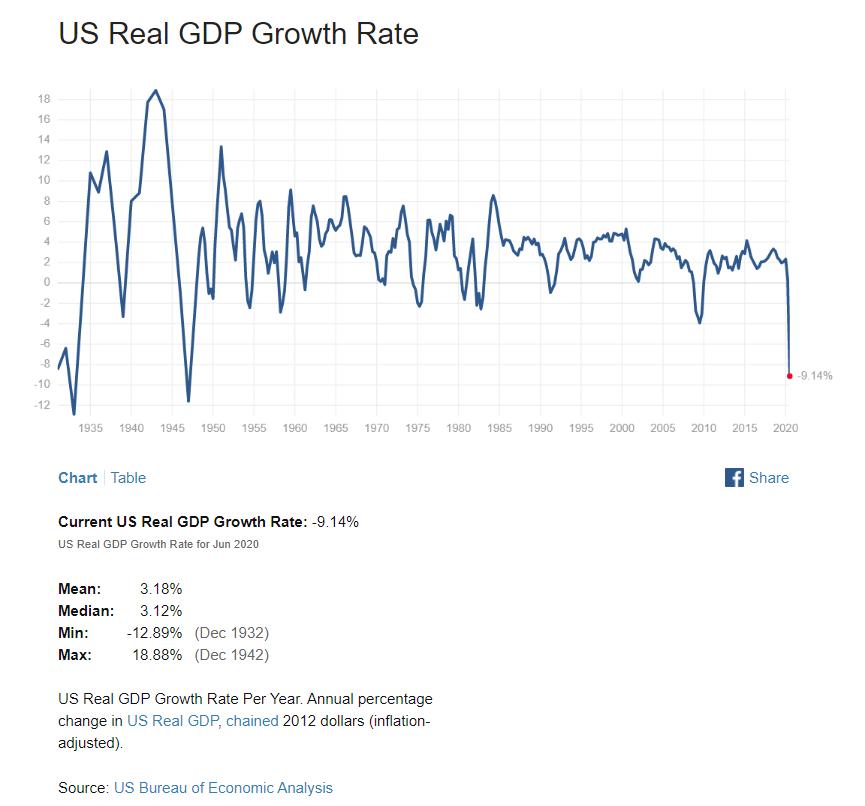
United States gross domestic product over the past century
it out to be. Real GDP growth in the U.S. has remained relatively stable since the 2008 recession, median household income was on a steady rise since about 2013, and since Obama’s second term, the U.S. has added about 200,000 new jobs each quarter (this has not boomed nor busted under Trump). The unemployment rate as well has been on a steady decrease since about 2010. In terms of the stock market, yes, it increased during this period. However, the stock market has been increasingly diverging with the de-facto economy for some time. 20 million people lost their jobs in April of this year, yet the S&P 500 had its best month in 33 years. All of this data points to one conclusion: Trump presided over a period of economic growth following the 2008 recession but did nothing to spur it. Now, I’d like to pivot to why you should support a Biden presidency. A visit to Joe Biden’s campaign website provides a look into what his presidency would look like: common-sense reforms on important issues approached from the angle of facts and data. Rather than playing to his base with buzzwords, Biden is looking to solve real problems. While Trump continuously tries to dismantle the Affordable Care Act, a healthcare program that covers tens of millions of Americans, Biden is looking to expand it, attempting to ensure that poorer Americans never have to worry about going bankrupt due to an unexpected medical cost. This one issue is just a microcosm of the entire situation: Biden has a comprehensive plan, Trump has none. In fact, I could probably dedicate 1000 more words just to analyzing all of Biden’s policies (of which there are many). In fact, experts have studied Biden’s policies and what they found should surprise nobody: a recent study by Moody’s found that Biden’s economic plan would create seven million more jobs than Trump’s. Many of Biden’s critics fear that he will be influenced by far-left individuals and turn the country into what they might call a “socialist” America. To this, I say two things. First, research what socialism actually is before making baseless claims. Second, pay less attention to Trump’s campaign ads and more to what Biden is actually doing. Biden has WIKIMEDIA COMMONS been consistently center-left on almost every policy issue since he’s been in the senate, favoring bi-partisan efforts to pass legislation. To think that he will suddenly cut loose from this strategy to satisfy the far-left is nonsense. If the far-left were actually a substantial part of the Democratic party, the nominee would not be Biden, it would be Bernie. If I still haven’t convinced you, let me attempt to appeal to your emotional side rather than your logical one. Donald Trump spews hateful, divisive rhetoric every time he speaks. He said John McCain “was a hero because he was captured. I like people who weren’t captured.” He refused to visit the Marine Corps cemetery at battleground Belleau Wood, saying, “Why should I go to that cemetery, it’s filled with losers?” In a differ-
ent conversation but on the same trip, he referred to the 1,800 dead U.S. Marines as “suckers” for getting killed. He admits to sexually assaulting women; since the 1970s, he has had upwards of 25 accusations of either rape, sexual assualt, or sexual harassment. He fuels the flames of racial tensions within our country, telling white nationalist groups to “stand by.” Joe Biden is seeking to heal our divided nation. He is the only candidate willing to say, “if I lose, I will accept the results.” That fact alone should be enough to guide your hand in the voting booth come November.
Colin Stewart ‘22
Justice Ruth Bader Ginsburg was, to say the least, a trailblazer in the fight for American women’s civil rights. As an attorney, Ginsburg successfully litigated six Supreme Court cases, each focused on gender discrimination in professional environments that she had faced and overcome as a law student at Harvard and Columbia Law Schools and professor at Rutgers and Columbia Law Schools. Appointed and confirmed in 1993, Ginsburg served the next twenty-seven years of her life on the court until she died from pancreatic cancer on September 18, 2020. With an empty Supreme Court seat, there is a constitutional obligation for President Trump to nominate and the United States Senate to vote regardless of the politically expedient precedent set by Senate Republicans in 2016. To understand the current circumstances, one must look back to 2016. Then-President Barack Obama nominated Federal Circuit Judge Merrick Garland to fill the seat vacated by late Justice Antonin Scalia, a conservative “textualist.” Over the following weeks, SenWill rubin ‘22 they are going to get out of it is that teenage American boys will laugh at anything remotely stupid. Half of my liked videos are just some random people doing silly things. Apparently, the Trump administration does not feel the same way. Donald Trump has been trying to ban TikTok since June. Before their first aggressions, though, the administration had been aware of the threats TikTok posed to Americans. Parent

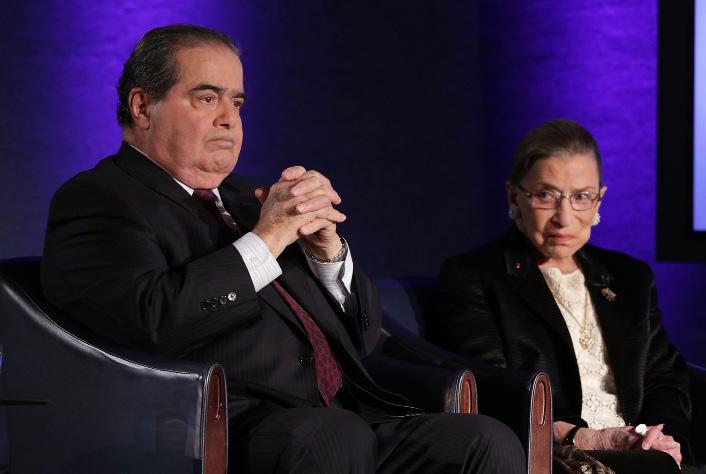
ate Republicans made clear that they were not going to hold a vote to confirm Merrick Garland regardless of the fact they held the majority. This would have allowed them to deny Merrick Garland the seat. Senate Majority Leader Mcconnell (R-KY) cited precedent from 1968 where Sen. Strom Thurmond (R-SC) blocked a vote on a Supreme Court nominee. McConnell would go on to block the vote and echo the same sentiment as Thurmond: “It seems clear President Obama made this nomination [...] in order to politicize it for purposes of the election. The American people are perfectly capable of having their say on this issue, so let’s give them a voice.” McConnell’s contention has no constitutional basis. Ginsburg even threw her hat into the ring on this issue stating to incoming law students at Georgetown University on Sept. 7, 2016, “The president is elected for four years not three years. So the power he has in year three continues into year four.” Senate Democrats opposed this proposition. Sen. Elizabeth Warren (D-MA) summed up the Democrats’ argument with this statement, “Filling a Supreme Court vacancy is one of the most solemn tasks undertaken by this government [...] it is our job, in the United States Senate, to hold hearings.” Oh, how the tables have turned. Now the obvious problem arises—everyone is a hypocrite. Sen. Lindsey Graham (R-SC) even said the words, “Use my words against me” in 2016 and Democratic
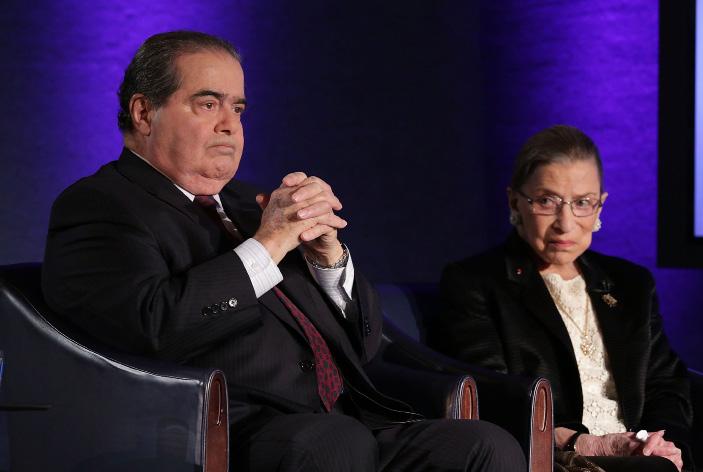
LEVAN RAMISHVILI VIA FLICKR company ByteDance was fined for illegally collecting the information of kids under the age of 13 back in February of 2019. In addition, the U.S. had accused TikTok of sending American user information it had previously claimed were stored in the U.S. to its Chinese servers. It all comes down to the trade war between China and the United States. The security and counterintelligence threats that Tik Tok pose don’t seem to be the only things on Trump’s mind though. There seems to be more of an economic standpoint many people fail to see. As the fastest growing social media app right now, Tik Tok has the potential to dominate the Antonin Scalia (left) and Ruth Bader Ginsburg at the National Press Club in Washington, D.C., April 17, 2014
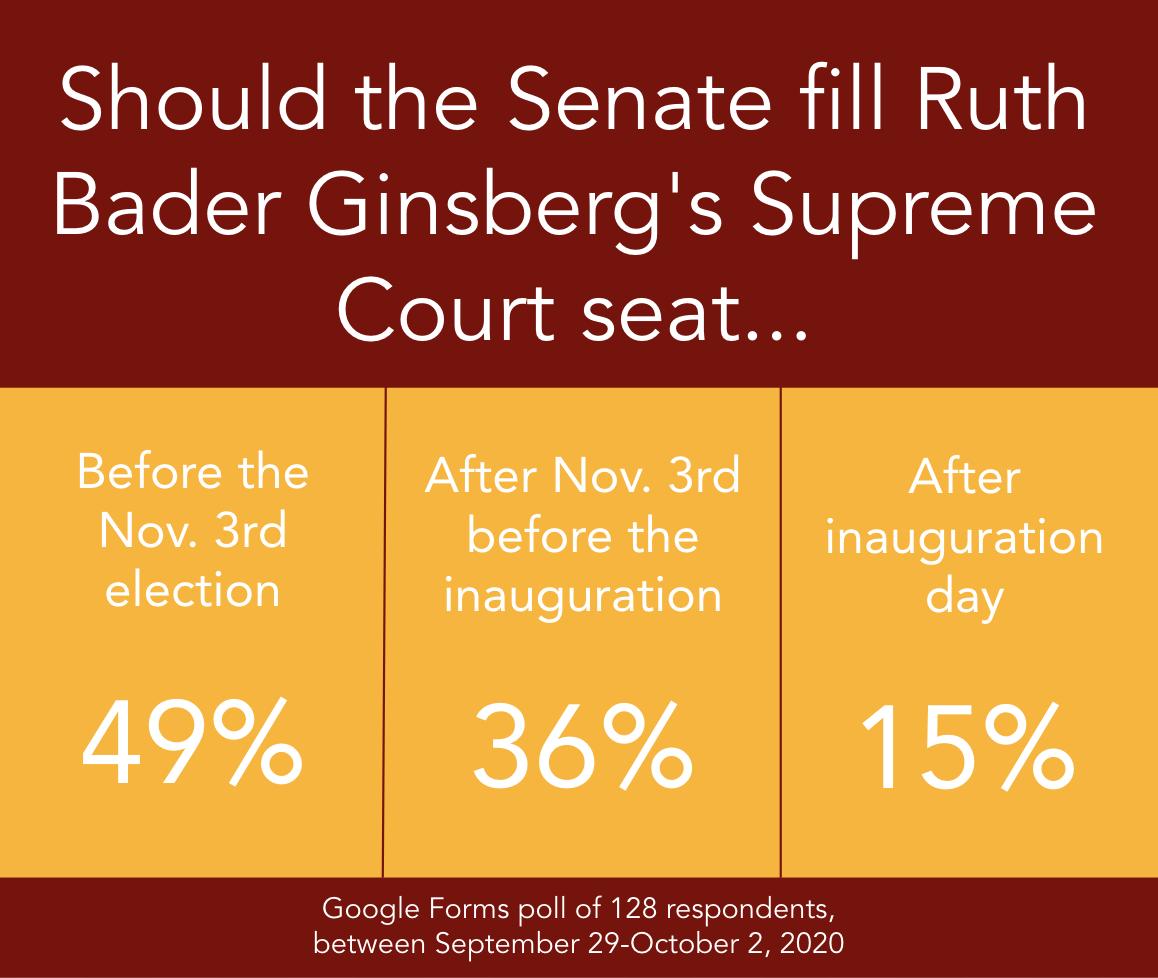
Presidential Nominee Joe Biden stated on multiple occasions that he believes that the Senate should hold a vote should there be a vacancy in an election year. In an interview in 2017, Biden said, “The constitution says the president shall nominate. [...] The Senate will act on its constitutional responsibility of giving its advice and consent. [...] They are required to give the nominee a hearing and a vote.” On the night of Ginsburg’s passing he tweeted, “Let me be clear: The voters should pick a President, and that President should select a successor to Justice Ginsburg.” I contend that the Senate is constitutionally bound to hold a vote. This responsibility is directly outlined in the Constitution, ArtII.SII.CII where it states, “He shall have Power, by and with the Advice and Consent of the Senate [...] he shall nominate [...] Judges of the Supreme Court.” The Constitution clearly bestows the responsibility of nominating and confirming a justice to the president and the Senate. This confirmation process has been carried out twenty-seven times during an election year. Another argument that President Trump and the Senate should not vote or confirm a new justice because Ginsburg’s granddaughter reported that Ginsburg said, “My most fervent wish is that I will not be replaced until a new president is installed.” This quote is questionable as Ruth Bader Ginsburg, much better than I, knew that there is no constitutional basis to hold a seat vacant because the past justice market. Trump wants to make sure that these social media giants are run from within the United States. TikTok has even revealed that it plans to add 10,000 more jobs if it makes its way into America. Recently, Trump’s threats seem to be working. A few weeks ago, Oracle and Walmart took a majority stake in the company, promising to overlook the source code and algorithm of the app before sending it to users. Many are still worried that information could be processed back in China. One could say that this goes against my original argument. TikTok will now pay American taxes, it will add new jobs, America will dominate the company, and many more of these great things. Yet Trump won’t settle for good. He wants great. He wants all of TikTok in the U.S. He won’t rest until the 36% of Tik Tok that is Chinese owned falls into the hands of Americans. The accusations that TikTok is a counterintelligence threat have never been fully proven. It all comes down to the trade wished it so. Many who aren’t invested in politics may find themselves asking why this is such a big deal. I would remind them that there is a high likelihood that the Supreme Court decides who wins the 2020 election. Many states changed from the tried and true process of voting in-person to mass mailout voting creating many problems. One of these includes whether ballots received after the election date should be valid. Seeing as the question of constitutionality has to be answered before the question of reliability, it will go to the highest court in the land. This would be similar to the 2000 election between Al Gore and George W. Bush where the Supreme Court had to rule on a recount dispute in Florida. In any normal election year with nine justices, this wouldn’t be a problem. If there are only eight justices there is a possibility for a tie in votes. This would create a power vacuum seeing as there would be no recognized President of the United States after January 20, 2021. Quite simply, no matter what side you’re on, you should be able to recognize that this Supreme Court argument has displayed the “politic” in politician. Even though Senate Republicans blocked a vote in 2016, it would be remiss of both President Trump and the Senate not to go through with the confirmation process knowing that a failure to do so could lead to nation-shattering re-
Trump foreign policy threatens Tik Tok
If the Chinese government wants to spy on my TikTok account, I don’t really care. The only conclusion

percussions. war between China and the United States. Trump’s background as a businessman is really shining in this moment as he tries to leverage the American obsession of curated fifteen-second videos. Striving to maintain American dominance over the social media market, Trump seems to be bringing out every weapon he has. Teenagers and adults rely on TikTok for their daily stream of entertainment, and it would be a shame if Trump used it as a pawn in his chess game against China.


Daniel Curran ‘21
As we learned in 2016, we must never count out Donald Trump. By every single metric, 2016 was a surefire win for Hillary Clinton. Going into election day, Clinton had a seven-point lead in the national polling average, and a six-point lead in key states like Wisconsin, Pennsylvania, and Michigan. As we all know, the polls got it wrong. This year finds us in a similar position. Biden holds roughly a seven-point lead in the national polling average, and a threepoint lead in the battleground states; despite this, I believe that this is Trump’s election to lose. Because he is the incumbent, enthusiasm within his base is high, and a shift in momentum in polling is possible. The president has the election within his control. Trump running as an incumbent gives him a huge advantage over Biden, giving him the ability to run off his accomplishments from his previous term, and whether you like him or not, he has an impressive resume. Prior to COVID-19, unemployment was at an all-time low, four million jobs had been added, median household income was at all-time high, and 3.9 million people had been taken off food assistance. Then when you look abroad, he was able to renegotiate NAFTA, defeat the ISIS caliphate, and help facilitate peace deals between Israel and the UAE, Israel and Bahrain, and Serbia and Kosovo. These accomplishments, combined with the fact that Trump has raised serious questions as to Biden’s mental fitness, have made this race much tighter than people anticipated. There is no doubt that the enthusiasm
Kethan Srinivasan ‘21
This year, I stand alongside fifteen million other teenagers who have turned eighteen since 2016. These teenagers have one thing in common: they are living through the same dilemmas as the rest of this country and have finally come to a national reckoning. They are closed in, navigating abnormal schedules, scrolling through their “For You” page on TikTok as the days pass. Many have taken hits from job losses and pay cuts as they wait and dream of their incoming stimulus package. This piece is not an attack on any particular group of people because all should be well-aware of the gravity of the current circumstances. In the span from January to this day, we have witnessed a virus kill more than 200,000 people, a worldwide wave of protests against racial injustice, wildfires spanning the Pacific coast, unemployment levels hovering at the rates of 2008, and a revered woman of the gavel’s passing. And all of this culminates in one of the most contentious election years to date. There is one thing you can safely say about Biden and Obama administration turn over power to President Donald Trump at the 58th presidential inaguration on January 21, 2017.
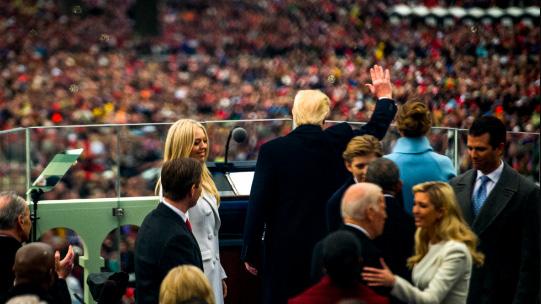
around Trump is significantly higher than the Biden campaign. Polls show that roughly 81% of Trump’s voters are voting for Trump rather than against Biden, while only 35% of Biden’s base is voting for him rather than against Trump. Trump’s base is also extremely confident in his reelection chances. Polling shows that 90% of Republicans believe Trump will win. Regardless of political views, 56% of Americans believe Trump will win reelection. Trump and his entourage have also been on the road campaigning in key swing states, holding large rallies and boat parades despite concerns over COVID, while Biden has not. This has led to Republicans adding significantly more newly registered voters in these states. There is enthusiasm within the Republican party. America’s youth: we are not a traditionally active group of voters. For many decades, the country’s elder population, the largest living generation of voters, has dominated American politics. Older people are overrepresented at the federal level, making up a majority of recent presidents and much of Congress since the 1990s. 2020 is the year of the youth. And
America awaits our voice. The year of the young now looms over this generation as they take their last stand. A recent report by the Brookings Institute has revealed that more than half of Americans are of the millennial generation or younger. The institute revealed the data findings which concluded that the combined millennials, Generation Z, and those younger make up more than half of the overall population at 50.7%. Combine this with a recent Harvard Youth Poll, which asked young voters between 18-29 years old whether they would be “definitely voting” in 2020. Nearly 63% of those individuals answered with that response compared to 47% 4 years ago. This demographic shift has its effects in various other areas, including racial and ethnic profiles, current economic backdrops, difference in social issues, and a greater coalescence as a result of increased racial awareness and activ Earlier in the summer, it seemed like a foregone conclusion that Trump would lose. Biden was up as much as thirteen points in national polls, and he led in virtually every battleground state. Since then, there has been a clear swing of momentum in Trump’s favor. As of now, Biden still holds a signifi cant yet diminished lead in national polling, and Trump has taken the lead in key swing states in the sunbelt according to a recent Washington Post/USA Today poll. Recent polling also suggests that Trump has signifi cantly closed the gap in what were considered safe states for the Democrats, including Minnesota, Nevada, and New Hampshire. This has caused Biden to have to spend time and resources on these states that could otherwise be used on Florida or Pennsylvania. ism in the face of racial injustice cases. This generation has built itself a platform in online and offline spheres. We have marched through streets, occupied millions of “For You” pages, and have managed to influence figures of different kinds to pick up the microphone on issues that plagues our minds, our safety, and our pockets. But the question lingers: can this influence be guaranteed where it matters the most? Are Gen Z and millennial individuals capable of doing everything in their power to shape America’s political apparatus? As it stands, our younger generations in this country comprise 40% of the national electorate this year. However, our turnout rate has been our greatest downfall for many years. Over the past decade, our age group consistently turned out below the national average, whilst many view this age group’s potential as limited due to varied political beliefs in a system dominated by two-party choices. Still, young people represent a racially diverse population spread over many states. They’ve shown a growing disapproval of specific leaders across party lines, increased support for social issues and movements, including Medicare For All and Black Lives Matter. Our potential legacy will only prove effective if we are willing to voice our sentiments on the ballot. My point is not to dissuade individuals from one specific side of the spectrum. It is to emphasize that, with the knowledge, understanding, and activism we now carry, we have a crucial civic obligation to vote.
STAFF SARGEANT MARIANIQUE SANTOS VIA WIKIMEDIA COMMONS If these polls are accurate, then once again, the election will come down to Pennsylvania, Michigan, and Wisconsin. Biden would then have to win all three of them in order to win the election. If Biden is relying on all these states to win, then Trump has to like his chances. If there’s any message that I wanted to get across here, it’s to get out and vote if you are able to. No matter if you vote for Trump or for Biden, our democracy depends on the people getting out to vote. The polls got it wrong in 2016, and they could very well get it wrong again. So if you are a Democrat, don’t take anything for granted. You saw what happened last time. And if you’re a Republican, this race is a toss up, Trump’s
Gen Z has a larger civil obligation to vote than ever

reelection depends on you. I am not one to lecture on which party holds the moral high ground because that is no easier of a conversation. It only takes one look outward to recognize the millions of young men and women armed with their phones, voting cards, and black pens, and I encourage you to register to vote by October 19th. 2020 is the year of the youth. And America awaits our voice.


